Turn it off – the anti-idling campaign
Fleet News partners with Camden Council and the City of London Corporation in 'Engines Off' campaign
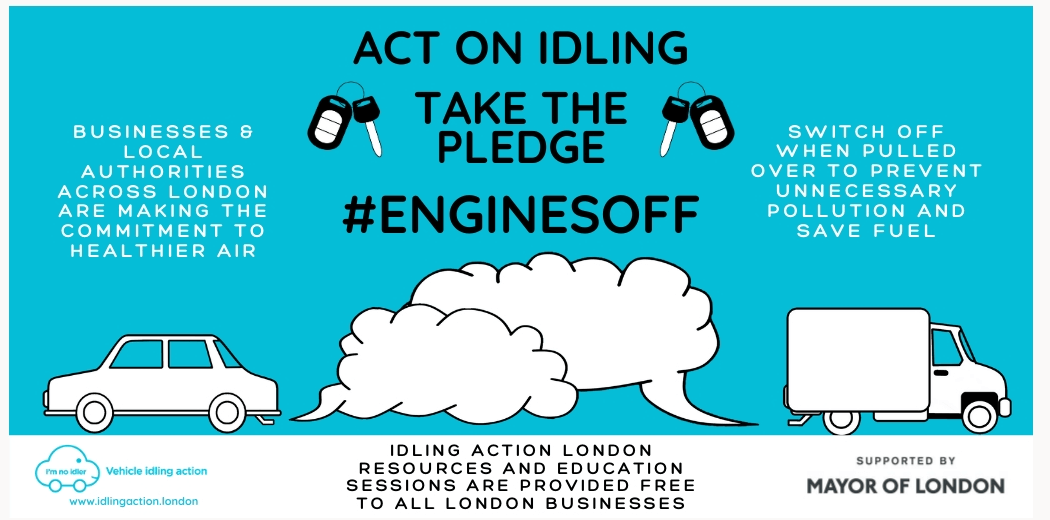
Businesses have revealed a host of benefits associated with encouraging company drivers to switch off their vehicle engines when stationary.
- Idling can cost up to 3p per minute
- Idling produces twice as much pollution
- Go to supporting material for your anti-idling campaign
An anti-idling policy not only reduces vehicle emissions and helps companies save money, but it also shows businesses in a good light to potential new customers and can help with staff recruitment.
Fleets are now being targeted as part of a new campaign which asks them to pledge their support to tackling engine idling.
Idling Action, supported by the Mayor of London’s Air Quality Fund, provides training and a free toolkit of educational resources to businesses keen to explore implementing an anti-idling policy.
Its ‘Engines Off’ campaign, led by Camden Council and the City of London Corporation, and supported by media partner Fleet News, focuses on companies whose drivers enter the capital.
But the problem of idling is widespread.
The campaign has partnered with British Safety Council to highlight the importance of switching ‘Engines Off’ to protect outdoor workers and is calling on companies to pledge a meaningful commitment to reduce air pollution from engine idling, to use the educational resources to engage drivers/ employees, to publicise their commitment and to demonstrate best practice to others.
A Transport Research Laboratory (TRL) study found that it can cost up to 3p for every minute spent idling. If a vehicle idled for 10 minutes per day, within six months that would equate to a cost of more than £58. It also found that idling for just 30 seconds produces twice as much pollution and wastes more fuel than switching off and restarting an engine.
Air pollution is the largest environmental risk to public health with up to 36,000 people dying prematurely as a consequence each year in the UK.
“It saves us money,” he said. “Even if it’s just one penny per trip, with the amount of vehicles we have it all adds up.” Nick Ruxton-Boyle, director of environment at Marston Holdings
Reaping the rewards of taking action
Idling Action recently hosted a webinar of companies who have signed up to the pledge.
Speakers were Damian Testa, head of policy and communications at the British Safety Council, Nick Ruxton-Boyle, director of environment at Marston Holdings, and Lynne Potter, senior sustainability manager at Mace.
Marston Holdings is a large transport and enforcement company in the UK, operating different subsidiaries that work with around 270 local authorities to provide a range of goods and services, such as traffic warden provision and the installation of electric vehicle charging points.
It was one of the first companies to sign up to the engines off pledge and, speaking at the webinar, Ruxton-Boyle said it was reaping the rewards of operating a policy encouraging drivers not to leave their vehicles idling.
The reason for signing up, he said, are many and varied and include how it sits alongside the Marston’s aim of having a net zero carbon fleet. It works with the majority of London boroughs which support the campaign, including Camden Council.
There is also a financial benefit to the company, as Ruxton-Boyle explained.
“It saves us money,” he said. “Even if it’s just one penny per trip, with the amount of vehicles we have it all adds up.”
Since signing the pledge late last year and educating drivers to the environmental harm of idling, the company has noted a 13% reduction in its idling activity. 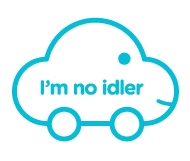
“We can monetise and carbonise that reduction and it’s a figure we’re happy with,” Ruxton-Boyle said, adding that it will never achieve a 100% cut because some of its vehicles do need to idle.
A member of Fleet200, it operates 1,300 vehicles: 547 light commercial vehicles, 319 cars, 289 scooters, 121 removal trucks and two minibuses.
The vehicles collectively cover around 113,000 miles and emit 350g of CO2 per month.
“We’ve got a challenge to go net zero for our whole fleet, which takes up about 80% of our carbon footprint, so it’s an important focus for us,” said Ruxton-Boyle.
A silent killer
Another key reason for the company to want to help reduce emissions in city centres is the fact that many of its employees work on the streets, such as drivers and civil enforcement officers.
Ruxton-Boyle said: “The streets are their place of work so we want to support and promote their working environment, which is important to us.”
The move can also help the company win new contracts from potential customers seeking companies with environmental credentials.
Telematics systems allow Marston to measure any savings in CO2 it makes from drivers switching off their engines. The software is used to monitor carbon savings, idling activity and driving behaviour, such as aggressive braking or acceleration.
Training to improve driving standards is then offered to drivers on a case-by-case basis.
“We collect a huge amount of data from our fleet, from each individual driver, from each region and contract and we analyse that data to work out how we can be better,” Ruxton-Boyle said.
“We use tools provided by Engines Off as part of inductees’ training and for our continuous professional development for our drivers and on-street staff to show them why they shouldn’t be idling. This is for our whole UK fleet and not just those in London.”
Results collected are reported to the company executive board via its environment board and this is also shared with employees and the company’s supply chain.
Describing air pollution as a ‘silent killer’, Damian Testa of the British Safety Council explained how the organisation had built an app – called Canairy – in association with King’s College London to help employers and workers minimise their exposure to polluted air.
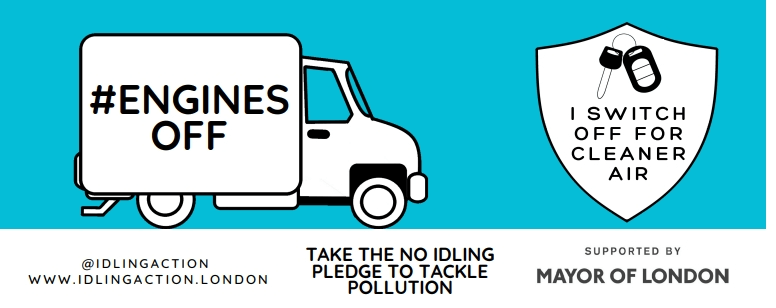
Your hourly exposure to deadly pollutants
Currently only available to London-based employers and workers, the app calculates a user’s hourly exposure to the worst pollutants and compares those levels with World Health Organisation (WHO) guidance.
“While it is only available in London, we are looking to develop it so it has wider utility. The app also gives tips on how to reduce exposure. Users can also set alerts to be notified if they move into an area where the ambient levels are above WHO limits,” Testa said.
“It’s a campaigning tool, so it’s not just about helping employees manage the exposure of their workers, it also allows employees to show their employers the danger they are in. Those employees could be career drivers, refuse collectors and bluelight workers.”
Global consultancy and construction firm Mace has not only signed the pledge, but also encourages its contractors to do the same.
Mace’s Potter said: “We want to consciously improve the air quality on and surrounding our sites as much as we can. Our no idling policy is standard across all of our construction projects.”
Those behind the campaign understand that some vehicles have to idle, for example so on-board equipment can function properly or it provides a safer environment for the driver.
Jack Alexander, of Idling Action London, said: “We can’t be as draconian as to say ‘no idling
whatsoever’, but our training resources are aimed at giving the driver all the information they need so they know when it’s appropriate to switch off and when it isn’t.”
More information
Visit idlingaction.london to pledge your support and explore the training material on offer.
Supporting material for your campaign
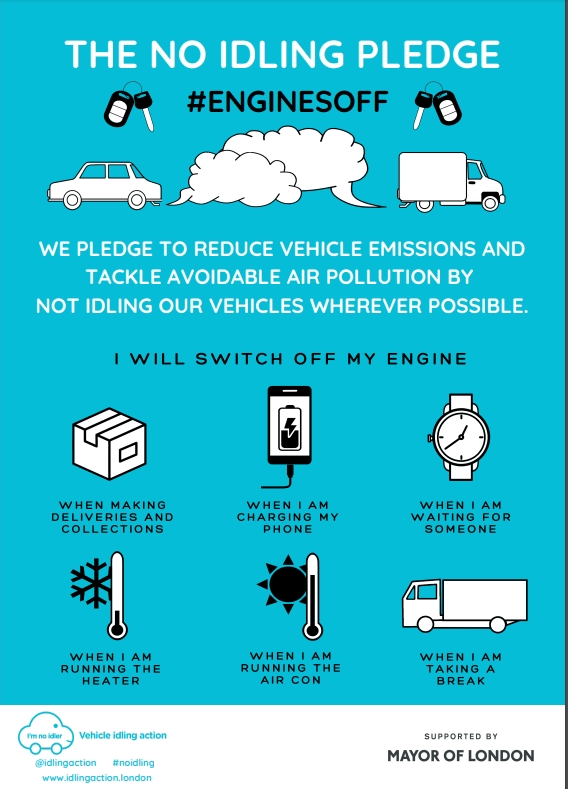

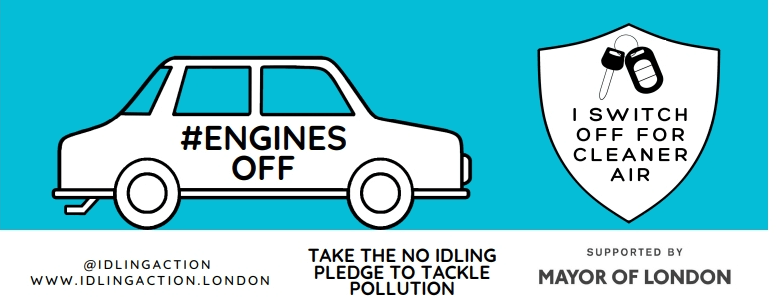












Login to comment
Comments
No comments have been made yet.